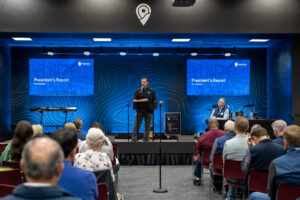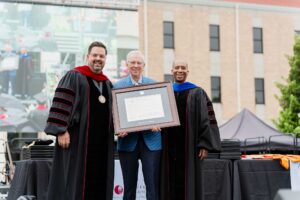Fossil find complicates theory of human evolution
ASHEVILLE, N.C. (BP) -- Analysis of an ancient human tooth appears to have taken one more bite out of the evolutionary narrative. The discovery reportedly adds to an increasing body of scientific evidence suggesting that Neanderthals, Denisovans, and modern humans belong to one species. Though it appears to throw a wrench into the theory that humans descended from archaic subspecies that migrated out of Africa, it fits quite well into the Biblical narrative.
Companies’ claims about DNA talent tests debated
CHINA (BP) -- DNA tests to check children for inborn talents are a burgeoning business in China and gaining popularity in the United States. But the genetic talent tests lack scientific accuracy and could psychologically harm children, some experts warn. Many parents in China hope to give their children an advantage in the country's competitive educational system by hiring biotech companies to perform genetic talent testing, MIT Technology Review recently reported.
DNA analysis surprises evolutionists
ASHEVILLE, N.C. (BP) -- A landmark study published last month appears to push back on evolutionists' assumptions about human ancestry. DNA analysis of an ancient bone fragment, published last month in the journal Nature, concluded the fragment belonged to a 13-year-old girl with a Neanderthal mother and Denisovan father. Evolutionists generally consider Neanderthals and Denisovans to be two groups of ancient human relatives that share a common ancestor with modern humans, but who do not come from the same species, and who rarely if ever mated.
Darwinian justification for human speech challenged
ASHEVILLE, N.C. (BP) -- The gift of speech, one of the capabilities that defines humans, appears to defy evolutionary explanations. Even now, a century and a half since Charles Darwin published "On the Origin of Species," scientists seem to be no closer to discovering how human language developed. For the past 20 years, science textbooks have taught students that two small genetic mutations, unique to humans, are responsible for human language. Time magazine reported in 2006 that these FOXP2 gene mutations may account for "the emergence of all aspects of human speech, from a baby's first words to a Robin Williams monologue."
New discovery sheds light on dark matter
ASHEVILLE, N.C. (BP) -- The recent discovery of a galaxy about 65 million light years away that appears to harbor no dark matter has flabbergasted astronomers who believe galaxies need dark matter to hold them together. "Finding a galaxy without any [dark matter] is completely unexpected; it challenges standard ideas of how galaxies work," Allison Merritt, one of the researchers, said in a statement. A paper describing the discovery appears in the journal Nature.
Scientists struggle with Earth’s solid inner core
ASHEVILLE (BP) -- If naturalistic theories are correct, Earth's solid inner core shouldn't exist, according to a new research paper in Earth and Planetary Science Letters journal. Current theory says Earth's center consisted of a ball of hot liquid iron 4,200 miles wide until about a billion years ago when the molten metal spontaneously began to solidify. Now, Case Western Reserve University planetary scientists say spontaneous solidification of the core is scientifically impossible. Andrew Snelling, a geologist with Answers in Genesis, said secular scientists struggle to find plausible theories for how Earth's inner core formed because they base their assumptions on a naturalistic viewpoint that rules out the supernatural explanation the Bible gives for Earth's origin.












